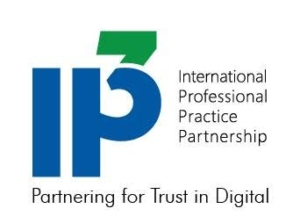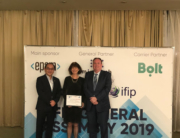 David O’Leary Award 2024 – Call for Nominations
David O’Leary Award 2024 – Call for Nominations
Once again, we are calling for nominations for this award.
IFIP IP3 acknowledges an individual or organisation that has promoted and demonstrated Professionalism (Professional Practice), has worked as an Ethics Evangelist, and/or has made strides in fostering diversity among ICT practitioners. An individual or organisation can be nominated.
The criteria include:
- Professionalism – demonstrated commitment to all aspects of ICT professional practice:
- Continuous Professional Development
- Service to organisation and broader community
- Trustworthiness
- Accountability
- Pride in the profession and setting a good example.
- Ethics evangelism – in addition to ethical behaviour, takes every opportunity to spread the Ethics message.
- Fosters diversity – works to promote gender, race, and digital equity.
The David O’Leary award includes a cash prize of US$1,500, and travel to IFIPs General Assembly to receive the prize (maximum travel allowance is US$1,000). The person who nominates the winner will be rewarded with an Amazon gift card to the value of US$100.
The winner in 2019 was Mary Cleary. The award was not made in 2020 because the General Assembly took place as a virtual meeting due to COVID-19 travel restrictions. The award was made in 2021 despite there being no physical meeting for GA. The winner in 2021 was Don Gotterbarn. Frits Bussemaker won the award in 2022, followed by Josine Overdevest in 2023.
A panel of a minimum of three officials from the Global Industry Council and the IFIP Board will judge the award and make the final decision.
The nomination form can be found here.
The closing date for the 2024 Award is 31 July 2024. All information is confidential and will only be shared with prior permission.
IP3 at World Summit for Information Society (WSIS) 2024
A team from IP3 will once again attend WSIS and present a Workshop. The event will be held at CICG and ITU in Geneva on 28 May 2024 from 9:00-9:45am.
The session, billed as a Partner Insight because IFIP is a supporting partner of WSIS is “Re” Generative AI – Using Artificial and Human Intelligence in tandem for innovation (session ID 140) – How humans can use their intelligence and creativity to get the most out of Gen-AI.
In this session, we will explore AI, especially Generative AI, and how it should be used in tandem with Human Intelligence. There will be demonstrations rather than presentations. An AI agent has been created, and the audience can interrogate the agent asking questions about a range of topics. Another interaction will show how AI can be used with HI (Human Intelligence) for innovation. As we explore the different Gen AI tools, we will ask the audience to try them out in real time. The panel will address questions from the audience. We want the session to be as interactive as possible, which is why the agenda is flexible.
Panelists: Moira de Roche (Moderator), Stephen Ibaraki (IP3 Vice-Chair), Eliezer Manor (GIC Director), Joyce Benza (IP3 Board), Don Gotterbarn (IP3 Board), Margaret Havey (IP3 Board) and Eunika Mercier-Laurent (TC12 Chair).
The full agenda for WSIS can be viewed here. As with all UN events, attendance is free, but registration is required (for onsite or virtual attendance). We encourage you to attend this session.
IFIP Code of Ethics: A Solid Foundation for Information Professionals
Information professionals have the international ‘Code of Ethics’ – adopted by the International Federation for Information Processing (IFIP) in 2020. Member organisations can subscribe to that code, many have done that. International cooperation at its best, with participatory development, consultation, and joint decision-making. The code is a basis and guideline for methods, best practices, standards, and frameworks. The question is how this code can be deployed optimally, thus creating trust in the sector. In this article we do a deep dive into the way the discussion of ethics is supported by different international frameworks.
Follow this link to explore how the code works, and how to apply it in your context.





